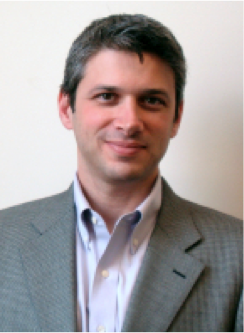
Abstract
One of the greatest challenges of the 21st century will be to understand, invent, and engineer new mechanisms and materials for energy production, energy storage and energy transport to counter the deleterious environmental and political impacts of our long-standing reliance on crude oil. Current renewable energy conversion and storage technologies are too expensive, too inefficient, or both, substantially limiting their use and global impact. For example, over the last century we have used two trillion barrels of oil and are likely to retrieve and use another trillion in the next several decades. The sun provides that entire 3 trillion barrels worth of oil energy in just 2 days. And yet, tapping into this enormous power to generate electricity is the least utilized renewable energy resource today. At the core of the energy challenge is a materials choice: many of the key mechanisms that convert and store energy are dominated by the intrinsic properties of the active materials involved. Our imperative is thus to predict, identify and manufacture new materials and designs as comprehensively and rapidly as possible, as the pressing challenge of producing and storing energy renewably calls for game-changing leaps forward rather than our current path of incremental advances. Toward that end, we use efficient atomic-scale computational approaches that serve both to elucidate fundamental mechanisms as well as predict completely new concepts and solutions. Our research focuses on the prediction of key properties that govern the conversion efficiency in these materials, including structural and electronic effects, interfacial charge separation, charge traps, excited states, band level alignment, and synthesis approaches. Examples of such calculations for the design of new materials for solar capture and storage will be presented.
Biography
Jeffrey C. Grossman is an Associate Professor in MIT’s Department of Materials Science and Engineering. He received his Ph.D. in theoretical physics from the University of Illinois, performed postdoctoral work at U.C. Berkeley, and was a Lawrence Fellow at the Lawrence Livermore National Laboratory. Prior to joining MIT in 2009, he was Director of a Nano-science Center and Head of the Computational Nano-science Research Group with a focus on energy applications at U.C. Berkeley. Grossman’s research uses theory and simulation to gain fundamental understanding, develop insights based on this understanding, and then use these insights to design new materials for energy conversion and storage with improved properties. He has published more than 100 scientific papers and holds 9 current or pending patents in the fields of solar photovoltaics, hydrogen storage, thermo-electrics and solar fuels.